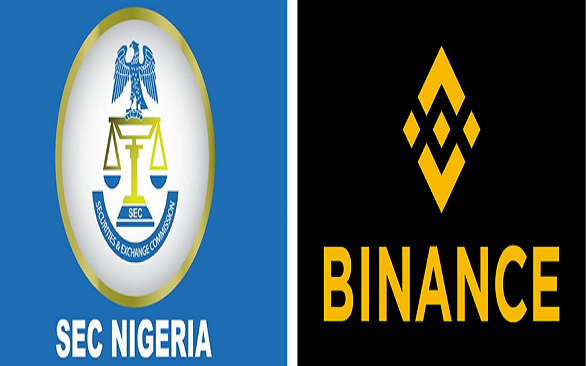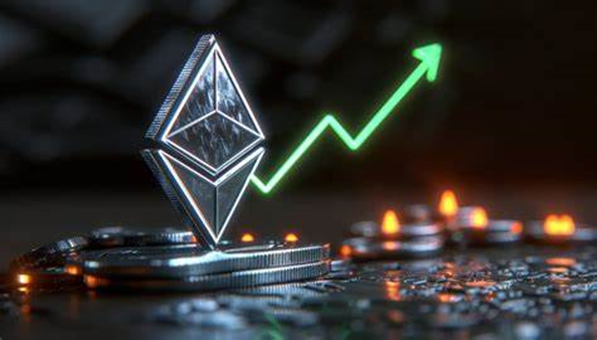Edison Irabor
Nigeria’s Securities and Exchange Commission (SEC Nigeria) has issued a circular, describing the activities of “Binance Nigeria Limited” illegal. The circular is published on the regulator’s website.
Issued 9 June 2023, SEC Nigeria stated that it is aware that Binance solicits the Nigerian public to trade crypto assets on its various web and mobile-enabled platforms, declared that Binance Nigeria Limited “is neither registered nor regulated by the Commission”, and “its operations in Nigeria are therefore illegal”.
Under the Investments and Securities Act, 2007, (ISA), SEC Nigeria has jurisdiction over securities and other forms of investments in Nigeria. Though not presently operative, SEC Nigeria introduced in May 2022 New Rules on Issuance, Offering, and Custody of Digital Assets in Nigeria. In November 2022, SEC Nigeria said it would promote investment in “sensible digital assets” with investment protection. The director-general of SEC Nigeria, Lamido Yuguda, reportedly said that the commission was avoiding the cryptocurrencies as crypto exchanges do not presently enjoy access to banking services in Nigeria. And then last month, SEC Nigeria, through reportedly said that SEC Nigeria was considering allowing tokenized coin offerings on authorized digital asset exchanges that are only backed by equities, debt, or property but definitely “not cryptocurrency”.
Also, SEC Nigeria warned that “[a]ny member of the investing public dealing with the entity is doing so at his/her own risk”.
According to SEC Nigeria, Binance Nigeria Limited is, by the circular, “directed to immediately stop soliciting Nigerian investors in any form whatsoever”.
Beyond Binance Nigeria Ltd, SEC Nigeria also warned Nigerians to steer clear of other crypto-asset or crypto asset-related platforms.
In the same circular, SEC Nigeria went beyond its stance on the activities of Binance Nigeria Ltd to other platforms that offer crypto assets and crypto-asset related financial products and services. As put by SEC Nigeria, it warned “Nigerians to be wary of investing in crypto-assets, and crypto-asset related financial products and services if the service provider/its platform is not registered or regulated by the Commission”.
SEC Nigeria warned that “investing in crypto-assets is extremely risky and may result in total loss of their investment”.
The regulator pointed out that it is its legal mandate to ensure investor protection.
Nigerian investors to expect updates on “further regulatory actions”
The regulator stated that it would provide updates on “further regulatory actions” with respect to the activities of Binance Nigeria Limited
SEC Nigeria also stated that it “shall work with other regulators in Nigeria to provide further guidance” on the matter. . SEC Nigeria did not state expressly if the Central Bank of Nigeria (CBN) whose cryptocurrency directive in the banking and financial sector remains operative in Nigeria or the National Information Technology Development Agency (NITDA) who is championing the recently approved National Blockchain Policy in the country is one of these “other regulators”.
At the time of writing, Binance has not responded to the circular.
Meanwhile, the effects of SEC Nigeria publicly declaring Binance Nigeria’s operations in Nigeria illegal remains to be seen.
SEC Nigeria’s duty to protect the Nigerian investor and the need for crypto industry engagement.
Understandably, the circular by SEC Nigeria is likely going to unsettle the crypto space in Nigeria. CAB is currently reaching out to stakeholders in the Nigeria crypto space for their takes.
Meanwhile, it is not clear if SEC Nigeria reached Binance Nigeria Limited before issuing the circular. Considering the implications of issuing a public statement describing the operations of the crypto exchange of Binance’s status with a significant market share in the crypto space illegal, one would expect that there must have been prior communication between SEC Nigeria and Binance Nigeria Limited.
Apart from the fact that the circular involves Binance, the world’s biggest crypto exchange, it also concerns all “crypto-assets, and crypto-asset related financial products and services if the service provider/its platform is not registered or regulated by the Commission”. At the time of writing this report, SEC Nigeria has neither indicated the crypto asset or crypto-asset related service providers or platforms that are registered with it in order for the members of the Nigerian public to know the service providers or platforms SEC Nigeria presently regulates in the crypto market. SEC Nigeria did not also state in the circular the specific reason or reasons behind its decision to issue the circular on the activities of Binance Nigeria Limited at this time.
Apparently, the circular on the activities of Binance Nigeria Limited may have been triggered by the news of the United States Securities and Exchange Commission’s (U.S SEC) enforcement action against Binance earlier this week.
However the concerns Nigerians as well as crypto asset or crypto-asset related service providers or platforms may have about the contents of SEC Nigeria’s circular, SEC Nigeria as the regulator of the capital market has a statutory duty under the ISA to warn the Nigerian public about the activities of any platform or platforms it considers risky to investor safety in Nigeria. This is because of the real or potential risks that may be particularly associated with dealing with such a platform. Binance’s activities have been questioned by a counterpart commission in a notable jurisdiction such as the U.S. Understandably, SEC Nigeria may feel the need to also warn the members of the Nigerian public about the activities of Binance in the country. Besides, SEC Nigeria is entitled to protect itself against future petitions or suits by any disgruntled investor or trader in the event of a collapse or any form of failure of the affected platform or platforms.
Looking forward
Beyond circulars however, SEC Nigeria’s concerns about consumer protection and investor safety in Nigeria’s crypto ecosystem needs to be better addressed. Nigerian investors and traders will expect that SEC Nigeria and other stakeholders in Nigeria’s emerging crypto-asset industry will get on a roundtable in the coming weeks. Anything less may be counterproductive or may not achieve the best results. The crypto industry will also expect that the Stakeholders in Blockchain Technology Association of Nigeria (SiBAN), the Federal Government-recognized stakeholder blockchain association, will lead the cause for the much-needed multi-stakeholder engagement. Ideally, the recently approved National Blockchain Policy should serve its use as things continue to evolve.
Read also: Why exactly the U.S SEC sued Binance, the biggest crypto exchange in the world, and Zhao
Read also: Binance accuses the U.S SEC of aiming to unilaterally define crypto market structure.
Discover more from Crypto Asset Buyer
Subscribe to get the latest posts sent to your email.





